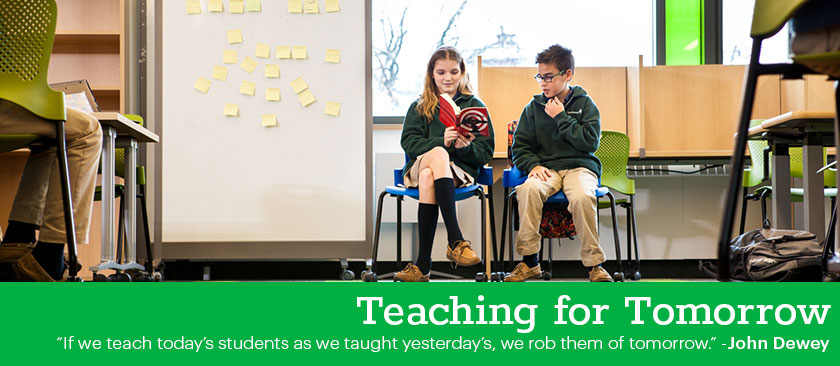The Grade 11 Regional Geography course is the first of its kind at Greenwood. Fully integrated with the fall outdoor education program, students enrolled in the course complete the first third of their credit while participating in a sea kayaking adventure off the west coast of Vancouver Island, British Columbia.
Using kayaks as their vehicles for learning, students explore the historical, cultural, economic and physical geographies of the Kyuquot Sound.What better way to learn about the composition and importance of the estuary environments than by paddling up Clanninick Creek? How better to study the lasting impacts of Canada's residential school system than by visiting the local school to learn about current programs supporting language reclamation?

The trip itself provides students with hands-on learning experiences that are enhanced by the passion and local knowledge of the guides at West Coast Expeditions and through interactions with members of the local community. Working from a base camp on Spring Island, students have opportunities to learn about and explore old growth forests, intertidal and estuary environments, past and present First Nations communities and much more. They also research topics of interest using the field library at base camp and teach each other about their findings. Time for reflection is provided at the end of each day. Students use this time to respond to prompts in their field guides, to make notes and to produce sketches of the local environment.

Upon returning from Spring Island, students write a test that covers pertinent topics from their field study. They also complete a reflection-based culminating activity that asks them to select and expand on the most important lessons learned on trip (this component is 10 percent of the credit). From there, they switch gears to focus on the final 60 percent of the course, which enables them to expand on their learning from British Columbia. This portion of the course is delivered primarily online and is supported by two thirty-minute meetings each week.

By completing a series of self-paced modules, students delve deeper into the four strands introduced on the trip: historical, cultural, economic and physical. Assessment of students' learning takes place in the form of module tests and internet-based assignments. Two to three assignment options are available for each unit, and students select and complete the option that best meets their needs in terms of both content and skill development. As the modules can be completed in any order, weekly meeting times are often spent sharing ideas and points of interest from the different topics of study.
The format of the course allows students to self-pace and self-direct through the material. One of the many benefits of this program is that students complete all of their regular assessments (and half of their culminating activity work) prior to the winter holidays. During the month of January, they work toward the completion of a major research project. In this culminating assignment, the students seek to answer a guiding research question of their own creation and present their findings in a manner suited to their research. Project topics and presentation methods are negotiated through a proposal process with the teacher in a manner that reflects geography courses at the postsecondary level. These projects are due in early February, which marks the official end of the course.
The regional geography program provides students with a truly experiential learning opportunity in British Columbia, as well as a condensed timeline for course completion that supports self-pacing and interest-based differentiation. The condensed format also supports student learning by providing participants with a spare in their schedule to use for homework completion and group meetings. Once the course ends, that extra time can be used to balance workloads in other courses.
With the first year of the program successfully completed, plans are already in motion to expand and refine the process for the 2015-2016 academic year.
Katharine Rogers
Teacher, Geography and English

 Depending on individual strengths and interests, some students were encouraged to design, conduct and analyze experiments to support a particular hypothesis related to climate change. Through controlled experimentation, one student analyzed the effects of deforestation on atmospheric temperatures. She found that environments exposed to high levels of greenhouse gases remained cooler in the presence of vegetation, thus illustrating the role that plants play in regulating climate change. Another student investigated the effects of carbon dioxide on rising sea levels. She designed a laboratory procedure to effectively demonstrate that atmospheres rich in carbon dioxide are able to rapidly melt ice, thereby contributing to rising sea levels.
Depending on individual strengths and interests, some students were encouraged to design, conduct and analyze experiments to support a particular hypothesis related to climate change. Through controlled experimentation, one student analyzed the effects of deforestation on atmospheric temperatures. She found that environments exposed to high levels of greenhouse gases remained cooler in the presence of vegetation, thus illustrating the role that plants play in regulating climate change. Another student investigated the effects of carbon dioxide on rising sea levels. She designed a laboratory procedure to effectively demonstrate that atmospheres rich in carbon dioxide are able to rapidly melt ice, thereby contributing to rising sea levels.







